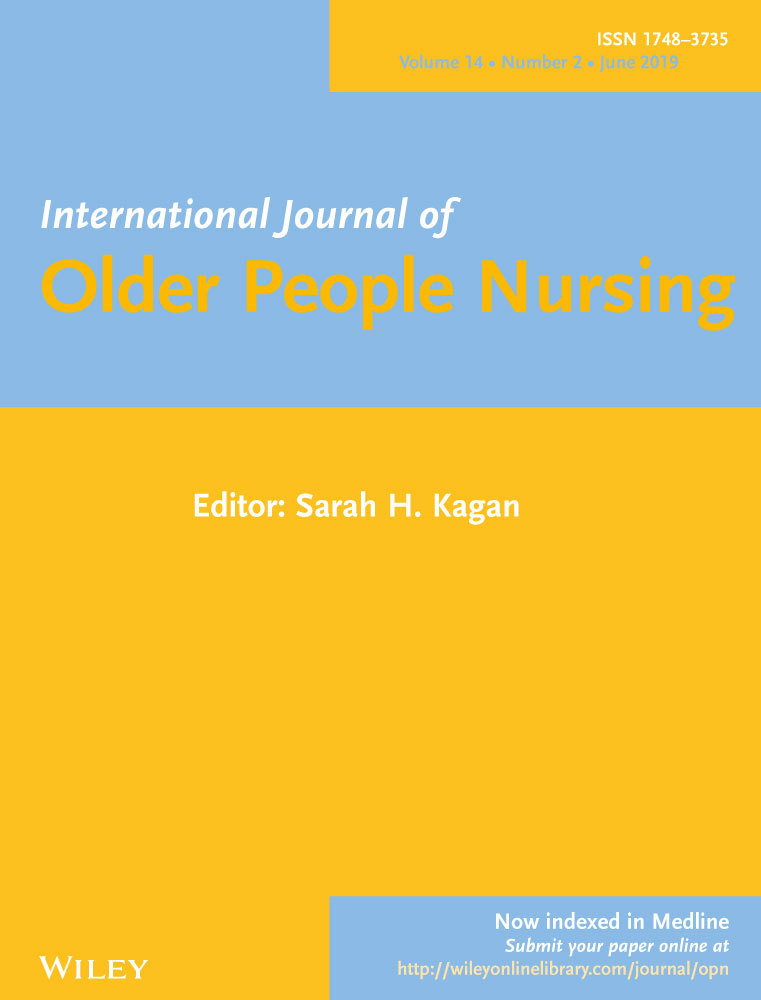Older people nursing in care homes: An examination of nursing professionals' self-assessed competence and its predictors
Funding information
The Finnish Work Environment Fund, Sirkka and Jorma Turunen Foundation and the Finnish Nurses Association provided financial support for this study. These funding sources provided financial support but were not involved in the study at any stage, except the Finnish Nurses Association assisted with recruitment.
Abstract
Background
The need for older people nursing expertise is increasing, and every effort is required to ensure that personnel taking care of older people are capable of providing high-quality care.
Aims
To explore care home nursing professionals' self-rated competence in older people nursing and to identify predictors of this competence.
Design
A cross-sectional survey design.
Method
Data were collected in August-September 2017 via an electronic questionnaire using the newly developed Nurse Competence in Care Home Scale (NCCHS). Participants (n = 781) were recruited via nurses’ associations and social media. They were working in care homes either as licensed practical nurses (n = 680) or as registered nurse and/or in managerial position (n = 101).
Findings
Approximately 65% of the respondents had “adequate competence,” and 35% had “inadequate competence” in older people nursing based on self-assessed overall competence. Respondents rated their competence highest in “observation, communication, interaction” and lowest in “group guidance and activities” subscale. Age and further training were predictors of licensed practical nurses' competence, and length of work experience predicted registered nurses' competence.
Conclusions
Self-assessments revealed the need for competence development especially in relation to holistic support of a person's well-being. It is recommended that care home nurses, managers, educators and curriculum developers all strive to develop care home staff's ability to support residents' well-being holistically.
Implications for practice
Nursing personnel should consider all aspects of older people’s well-being holistically. In care homes, it is essential to assess nursing staff competence and to provide possibilities for competence development for personnel.
CONFLICT OF INTEREST
The authors declare that there is no conflict of interest.




